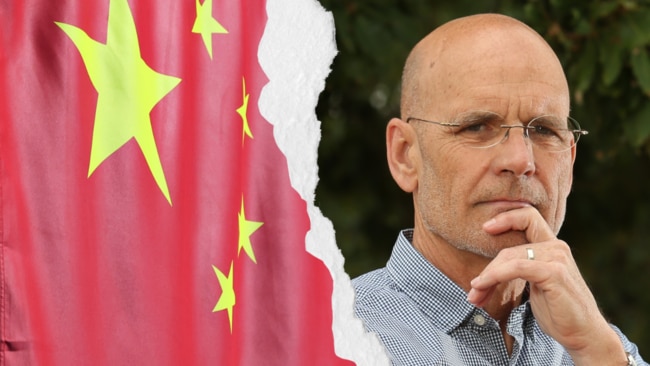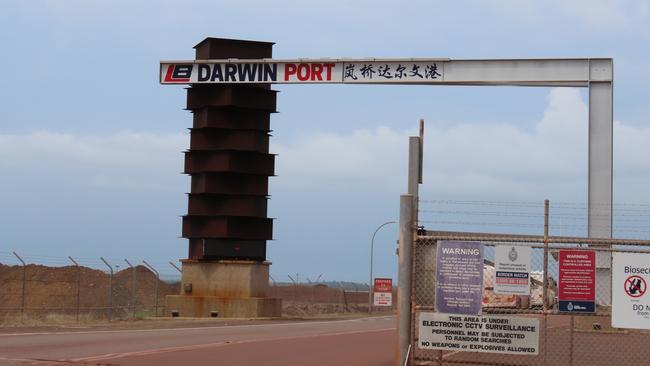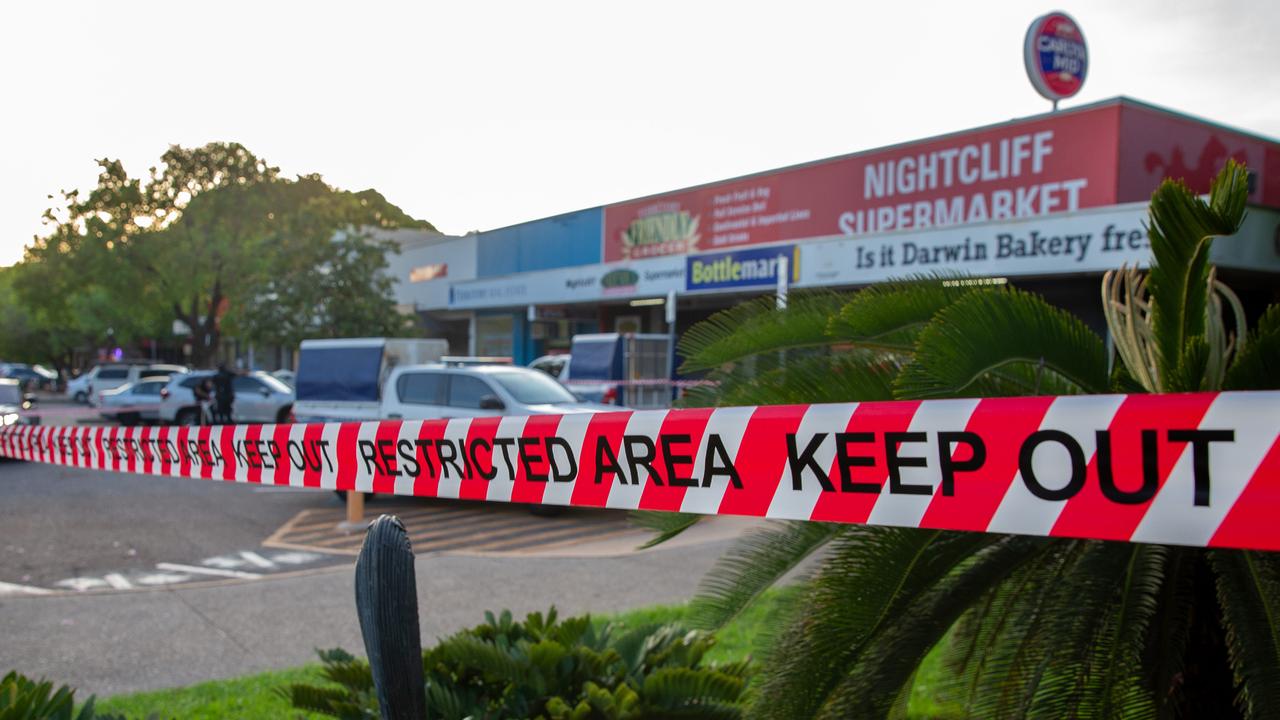Professor Clive Hamilton on the Port of Darwin, Chinese interference
Professor Clive Hamilton was followed, monitored, repeatedly cyber-attacked and banned from entering China after unveiling the extent of Beijing’s interference in Australia - which included their grip on the Port of Darwin.

News
Don't miss out on the headlines from News. Followed categories will be added to My News.
Professor Clive Hamilton was followed, monitored, repeatedly cyber-attacked and even banned from entering communist China after unveiling the extent of Beijing’s interference in Australia - which included their grip on the Port of Darwin.
In 2018, Professor Hamilton published ‘Silent Invasion: China’s influence in Australia’, which detailed China’s infiltration of Australia’s political sphere, business world and education sector.
The Port of Darwin, having only been leased just a few years earlier, was among the many examples examined by Professor Hamilton.

At the time, there were few voices in the academic or political world who had extensively criticised the Chinese Communist Party as Professor Hamilton did — a reality which made the backlash even more vicious.
“It was a very difficult few years, there were people monitoring my office building, I had a series of cyber attacks, my laptop was compromised,” he told this publication.
“People were following me – it was a very strong, disconcerting message that was (being sent) from Beijing-linked entities and people operating in Australia.”
The lonely experience was made worse when Professor Hamilton’s fellow countrymen also turned on him.
“I came under an enormous attack from civil society – people in Australia accusing me of being sinophobic and racist and so on,” he said.
“In some ways that was as difficult.”
However, he doubled-down on his position, publishing ‘Hidden Hand’ in 2020, which, alongside co-author Mareike Ohlberg, Professor Hamilton detailed China’s global program of influence and subversion.
Ultimately, Professor’s Hamilton’s outspoken position drew the ire of the CCP, who banned him from visiting China.

A self-described man of “the left”, Professor Hamilton, who once ran as a Greens candidate in Victoria, said he was surprised when now-coalition defence spokesman Andrew Hastie was one of the few elected officials who publicly leapt to his defence following the book launches.
“(Hastie) gave me a great deal of support which was extremely welcomed, but a bit disconcerting given the political gap between us,” he said.
“But I was extremely grateful for it.”
Last week, both Prime Minister Anthony Albanese and opposition leader Peter Dutton vowed to end Landbridge’s 99-year lease on the Port of Darwin – years after Professor Hamilton had urged government action on the matter.
“My first impression was “what took them so long?’” Professor Hamilton said.
“Some of us close to this issue thought (the decision to lease) was extraordinary and naive.”

So what is the risk of a Chinese owned company operating a strategic asset such as the Port of Darwin?: “Espionage”, according to Professor Hamilton.
“We don’t know if Landbridge has actually done that, but we certainly know that if it were asked to do so by Beijing it would be required under Chinese law to follow that direction,” he said.
“Therefore, having a Chinese entity own any one of Australia’s ports or other piece of critical infrastructure is not just unwise, but foolish.”
Landbridge’s exclusive insight into sensitive activities was highlighted last month when nuclear-powered submarine USS Minnesota docked at East Arm - an event which Professor Hamilton says could have prompted the final decision to reclaim the port.
“The Americans have expressed their unease about a Chinese owner of the Port of Darwin on a number of occasions, and that incident only reinforces their unease,” he said.
“It’s possible the Americans expressed their unhappiness which has got Peter Dutton to trigger his decision to announce the lease would be handed (back) to Australia.”
With public awareness around Chinese activities rising, Professor Hamilton said he believed Beijing’s influence activities had “gone underground”.
“They’ve stopped being blatant about it and so it’s harder now to detect,” he said.
“For example, it’s harder for them to get access to politicians - our politicians, on both sides, were like babes in the wood (whereas) now they’re much more cautious because journalists watch them more carefully.”





